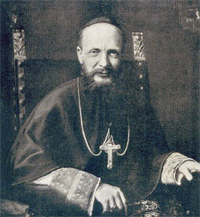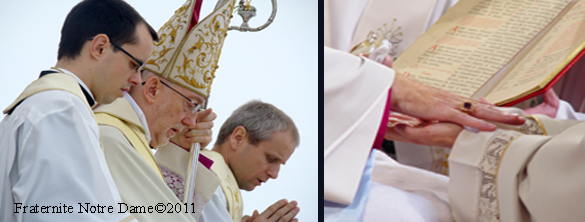It must be specified here that Archbishop Pierre Martin Ngô-Ding-Thuc had received a special mandate from Pius XI and that he was entitled to perform episcopal consecrations without referring to the Holy See.
This Mandate has never been revoked.
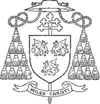
on March 15, 1938, Pope pius xi honored bishop ngo-dinh-thuc with a very particular trust, through a delegation of powers, of which here is below a copy.
Here is the text of this motu proprio:
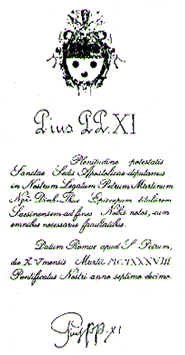
Pius XI, Pope,
In virtue of the fullness of powers of the Holy Apostolic See, we institute as our legate Pierre Martin Ngô-Dinh-Thuc, titular Bishop of Saïgon, for purposes known by us, with all the powers required.
Given in Rome, near Saint Peter, on March 15, 1938, in the seventeeth year of our pontificate.
Pius XI, Pope
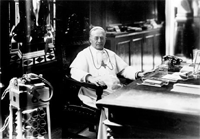
These two cases are similar.
Through this act of the Holy See, the two bishops received pontifical powers, the ones of Patriarchs. The detail of these powers is made explicit by Pius XI himself, such as it is reported by Father Lesourd in the following terms:
"Orally, the Holy Father first of all detailed all the powers he was granting, including to choose priests to be consecrated, and to be conferred the episcopate, without any need of pontifical bulls, neither, therefore, to give their signature, binding them to conform to them under the faith of an oath.
Then, after having detailed at lenght and with word of mouth all the really extraordinary powers, the Pope summed it up, saying very solmnly : "In a word, We grant you all the pontifical powers of the pope himself, that are not from uncommunicable divine right".
Therefore, Bishop Pierre Martin Ngô-Dinh-Thuc disposed of the same powers..."
on March 10, 1926, the same pope Pius XI had dictated the same motu proprio for the benefit of Bishop d'Herbigny (S.J.). A copy of the latter is shown in Father Paul Lesourd's book, published by Lethielleux under the title "The clandestine Jesuit".
Here is a translation of it:
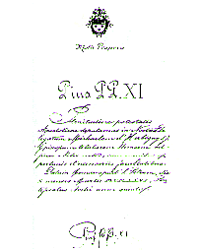
Pius XI, Pope,
In virtue of the fullness of the Apostolic power, we insttitute as our delegate Michel d'Herbigny (S.J.), titular Bishop of Troy, for purposes known by us, with all the powers opportune and required.
Given in Rome, near Saint Peter, on March 10, 1926, in the fifth year of our pontificate.
Pius XI, Pope
